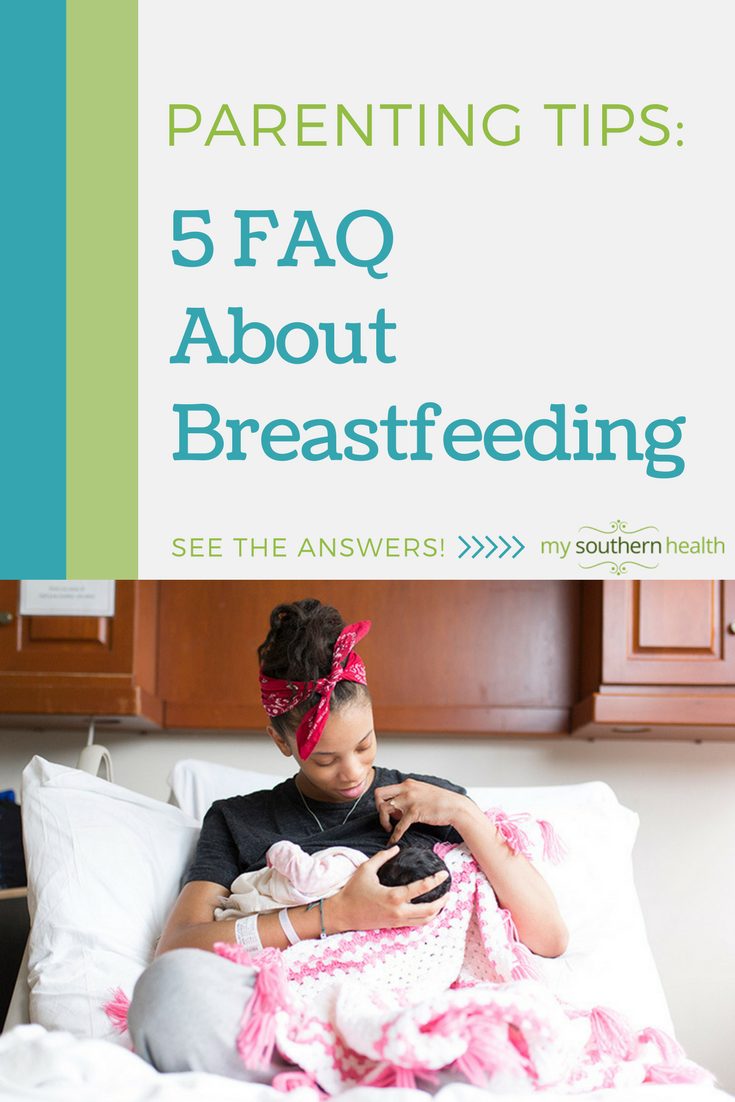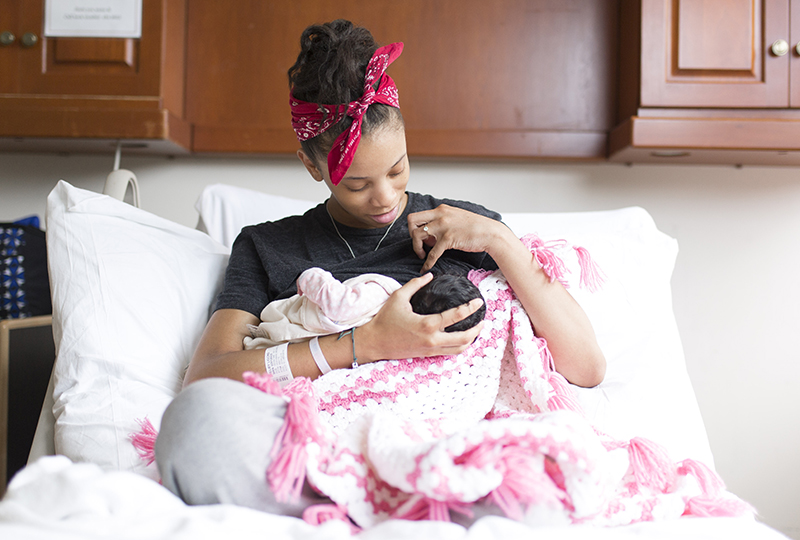Here’s some advice to help mothers and babies have an easier journey to successful breastfeeding.
Having a baby is an amazing and exciting stage of life. Mothers must make many decisions to prepare for their sweet bundles of joy, including how to feed the baby. Most new moms decide to breastfeed. Breast milk is the perfect food for babies, and breastfeeding is convenient and affordable.
When I had my son, I was nervous. I had never seen a baby breastfeed, and I felt like I knew nothing about babies. Although I had done a lot of reading about breastfeeding, when I had the real baby in my arms I felt totally inept and clumsy and had lots of questions. Fortunately, my baby was able to help me figure it out. He taught me that although the first two weeks were challenging, breastfeeding is a beautiful, fulfilling experience well worth the effort.
Now, as a lactation consultant, I talk with women every day who are very similar to me when I was a new mother.
Here are the five most common breastfeeding questions I’m asked. I hope the answers will help moms and babies have an easier journey to successful breast-feeding.
1. How can I get breast-feeding off to the best start?
Consider taking a breast-feeding class, read about breastfeeding and/or consider visiting a support group for breastfeeding moms. When your baby is born, put him or her skin-to-skin on your chest right after birth. It’s ideal to put baby to breast within the first hour of life. Spend lots of skin-to-skin time with baby for the first few days. Offer your breast to the baby frequently (8 or more times a day), especially when you see early feeding cues like mouth movements or rooting. Avoid pacifiers, bottles and supplements that haven’t been prescribed by a medical provider until breast-feeding is well established (usually about a month).
2. Does breastfeeding hurt?
It shouldn’t hurt. It should feel like a strong tug or pull. If you feel pinched, pain throughout the feeding, your nipple looks pinched or your nipples are getting sore, ask for a lactation consultant. Changing positions or latch techniques will usually reduce discomfort. Nipple tenderness is fairly common while learning, but true pain is not normal. If your nipples feel tender, try rubbing some breast milk onto the nipple and air dry after feedings.
3. How will I know if my baby is getting enough if I can’t measure the milk he is drinking?
Although you can’t measure how much breast milk your baby is getting, you can tell if your baby is getting enough. A newborn’s tummy is tiny at birth, and in the first days you have exactly the amount of colostrum (first milk) he needs. His tummy gets bigger as you produce more milk. By the fifth day, you should have full, heavy breasts. You should hear the baby swallowing during feeding, and your breasts will soften with feedings.
Diapers are a sign of intake: What goes in must come out. As baby is getting more milk, he will make more diapers. By the fifth day, when your breasts should feel full of milk, your baby should be having six or more good wet diapers and three or more dirty diapers.
Finally, it’s normal when baby loses some weight in the hospital (usually around 7 percent). Baby should be at birth weight by two weeks and gain 3-7 ounces weekly after that.
4. Are there foods I can’t eat when I’m breastfeeding?
Most babies do fine with whatever food mom eats. It’s best to eat a wide variety of foods so that baby will learn to like a variety of flavors in your milk. However, if your baby gets gassy or fussy 4-6 hours after mom has a certain food, you may want to avoid that food for a few weeks and then try again.
5. Can I continue to breastfeed when I go back to work?
Absolutely. Many women successfully return to work and continue to breastfeed.
While it is so helpful to prepare and and learn about breastfeeding before baby is born, it is also important to remember that it takes practice, patience and persistence. In the early days, it is normal to feel unsure and frustrated at times. Don’t hesitate to call your lactation consultant for help and encouragement. You will find that nursing your baby gets easier and before you know it, your baby will be about two weeks old and you will feel like a breastfeeding pro!
Regina Scott in a Registered Nurse and an International Board Certified Lactation Consultant. She is a wife and a mother of three who loves reading, having friends over to visit around a campfire, and riding around with the top down on her convertible! Soon, she will have an empty nest and is hoping to catch up on scrapbooking and learn how to use her camera.


